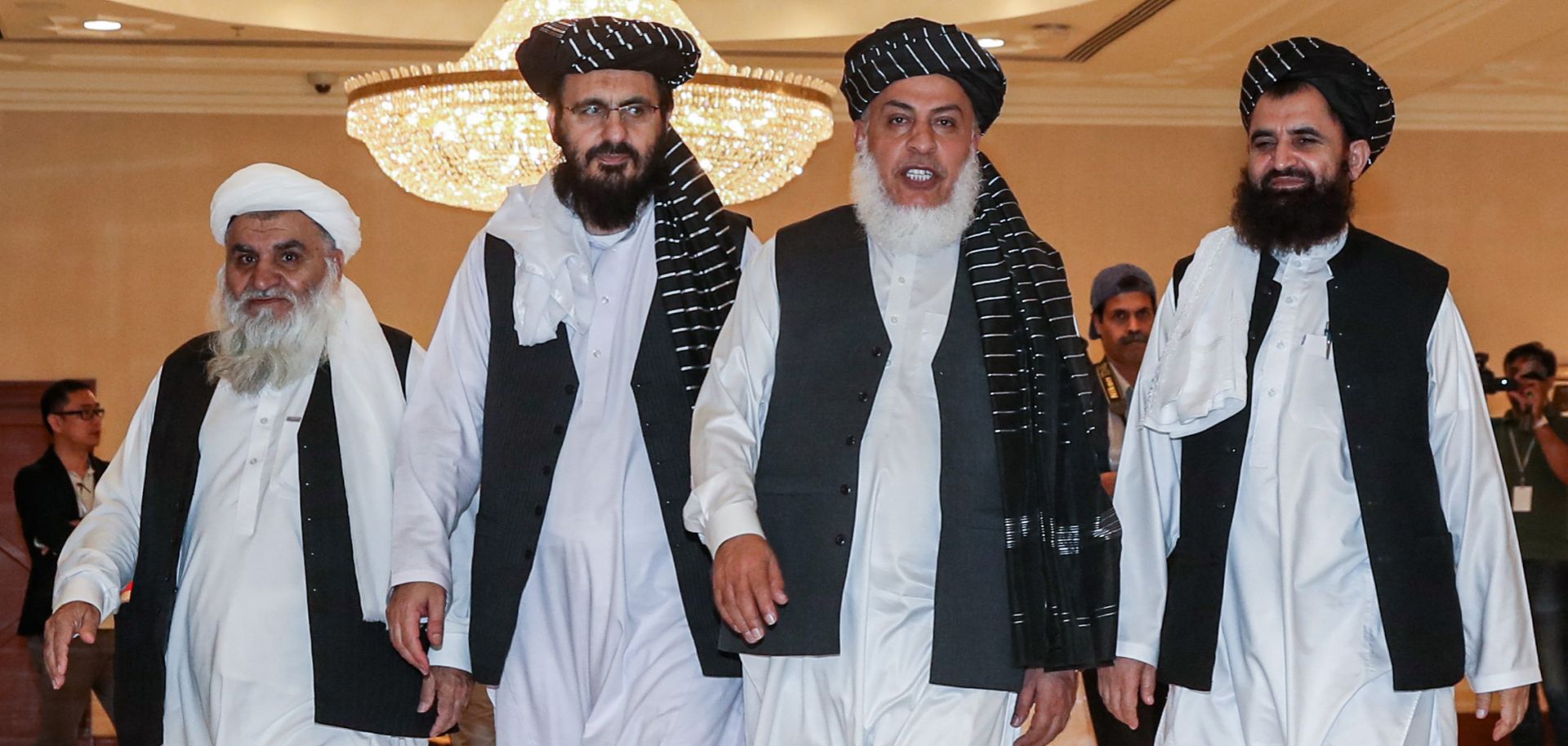GUIDANCE
Afghanistan Heads Toward a Turning Point
Jul 31, 2019 | 21:33 GMT

Mohammad Nabi Omari (C-L), a Taliban member formerly held by the United States at Guantanamo Bay, Taliban negotiator Abbas Stanikzai (C-R) and former Taliban intelligence deputy Mawlawi Abdul Haq Wasiq (R) walk with another Taliban member during the second day of the Intra-Afghan Dialogue talks in Doha on July 8, 2019. Washington and the Taliban might be on the cusp of a peace deal in Afghanistan.
(KARIM JAAFAR/AFP/Getty Images)
Subscribe Now
SubscribeAlready have an account?
